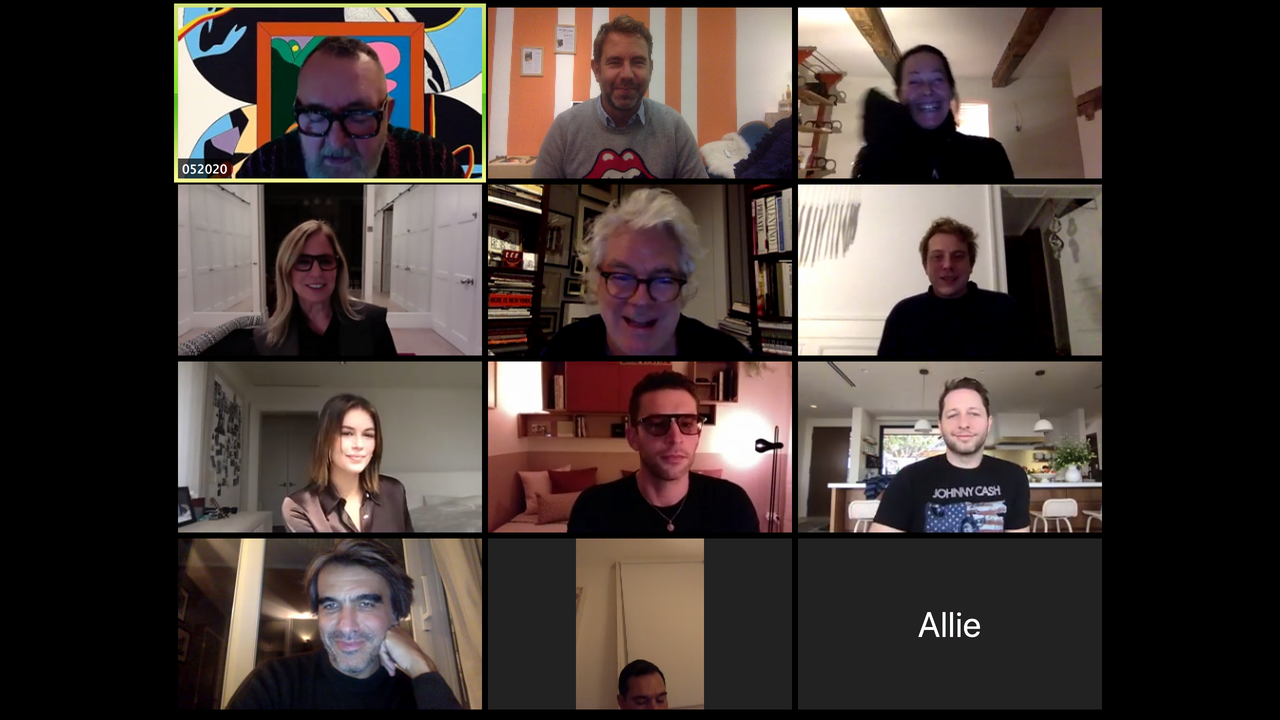One common thread which I’ve noticed, to answer your previous question, is that they all have this obsession of ‘make.’ The collaboration with the Chanel Métiers d’Art has been fantastic in this respect, the results are amazing, it’s incredible what young people can do when very old established couturiers put expertise at their disposal— the jewelry, the glove making, the hatmaking (seen) through the eyes of young people. That for me was kind of exciting, this celebration of the art of collaboration.
And the jury, being also quite diverse, has tried to see their work from different angles. We have received boxes full of samples, perfumes, scraps of fabrics, drawings… it was really nice to be at the receiving end, instead of being the one sending out boxes—it’s a festival in a box! For once, I was the one receiveing a box—it was such a nice feeling to discover (what was inside) and become more intimate with things, and take our time a bit to kind of digest and re-understand where we are, instead of trying to always forget about it. It’s nice to get to know new people, their world, and listen to their viewpoint, sit back and listen, and hear what people have to say, because actually I spend most of my days talking—it was great to listen to people talking, instead of me barking what needs to be done!
Being on the jury side, did you see yourself in them when you were at the beginning of your career?
Yes, I actually did! I went through exactly the same process, I remember doing the same thing for the Woolmark Prize, which was a total disaster! I’ve lost many awards, I didn’t even get into the university that I wanted, so yes, my whole thing is that no matter who wins or loses failure and success go hand in hand—I don’t think I would be where I am today without a lot of failure, but I don’t see it as failure, I see it like something that teaches you to keep going.
So, what’s the one piece of advice you’d give them?
This would probably be my biggest piece of advice: to embrace failure, and to be ready and excited to fail, and to fail again. It’s a very good thing, because I think you learn from that. If you were told you were a genius all your life, then people would write you were a genius and that’s it, they don’t really tell you who you are, they don’t really go in depth into it. There’s nothing worse than the idea of the genius designer, it’s a sort of a very odd tombstone. And probably my other advice would be to never compromise, in this day and age you have to crack your own self (open)—and I think it’s really a moment now that, when doing or being involved in fashion, you have to really look at yourself and say, I’m so lucky in what I do. No matter in what capacity you’re working in this industry—editor, buyer, stylist, producer, whatever—we never actually slow down and say, god, we’re lucky. There are lots of people who are not in that situation, and if you want to participate in fashion I think you really need to learn how to be humble, because if not, you become a very isolated character which I think in this day and age no one really wants anymore—no one wants elitism, no one wants ideas of privilege, that is not modern anymore. With what is happening in the greater world, fashion isn’t the center of the universe.
